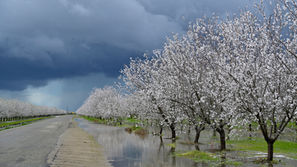Opinion: The world has one less nobleman
- Apr 17, 2021
- 4 min read
About a week ago, every metropolitan area, every city, every town, every village, and every hamlet got word that Prince Phillip, stage prop for the Queen of England, died. Mr. Mountbatten-Windsor, or Phil as I liked to call him, was 99. Today, his casket will be moved from the state entrance of Windsor Castle to St. George’s Chapel within the castle for a “ceremonial royal funeral.”
Meghan will not be in attendance, according to People.com. But, don’t be sad. Phil had a charmed life, literally the life of a prince.
Theory of aristocracy
You see, Phil was born into the anachronistic European system of aristocracy, a word derived from the Greek language and meaning “government by the best.” The theory of aristocracy is that those people who are born to parents of great wealth and power have more ability than those born to lesser status and should therefore be the leaders of society, making decisions for and about the rest of us.
In the past, before science proved otherwise, it was believed that the aristocracy had blood flowing through their systems that was superior to that of mere mortals. From this belief sprang the notions of “blood royal” and “blue blood.” The latter expression may have developed from the fact that the veins of people of light skin appear to be blue. This was particularly important in Spain, which had been partially occupied by dark-skinned Moors for nearly 375 years, until 1492. Blue veins were taken as proof that there had been no ancestral intermarriage.
Over time, a belief developed that people of noble standing ruled by “divine right;” in other words, God intended for them to be our leaders. And from this tenet arose a practice known as “The King’s Touch.”
The king’s touch
Beginning around the 15th Century, people in England and France thought that God had given their aristocrats the ability to cure the sick by the “laying on of hands.” This ritual appeared to be legitimated by a passage from the Bible (Mark 16:18): “They shall take up serpents; and if they drink any deadly thing, it shall not hurt them; they shall lay hands on the sick, and they shall recover.”
(Interestingly, this same passage led to serpent-handling cults, principally in the deep south and Appalachia.)
During the late middle ages in France, it was believed that the process of coronation of the king was the point at which the gift of the King’s Touch was conferred upon the new monarch. Demonologist Pierre de Lance proclaimed that even dead kings could heal the sick. The curative power of kings was so profound that people came from many parts of Europe hoping that a member of the nobility, maybe even an English or French king, would touch and cure them.
Democracy vs. aristocracy
Democracy is the opposite of aristocracy. Like “aristocracy,” the etymology of “democracy” shows that it derives from Greek. The word, demos, means “people.” So, in a true democracy the people make decisions and create laws.
In the United States, the founding fathers chose a variation of true democracy called representative democracy, whereby the people select legislators who, in turn, represent them. Although the system has been corrupted by the creation of the Electoral College, the placement of party above country, the acceptance of lobbyist’s dollars, and approval of political action committees, it’s still better than living under the thumb of a monarch.
Lest we forget
More than twelve score years ago, barefoot boys walked many miles to join General George Washington’s army so that they could fight for freedom from the tyrannical reign of King George III. When the 1788-1789 elections were held, only six of the eleven states that were eligible to cast ballots chose electors by some form of popular election. (New York had not picked electors in time, and North Carolina had not yet ratified the Constitution.) When Washington’s victory was announced, Ben Franklin walked up to him, shook his hand, and said, “Congratulations, Your Majesty.” Washington replied, “You may call me Mr. President or Mr. Washington, but we will have no nobility in our country.” Or words to that effect.
Redux: 21st Century
We are now in the 21st Century, and there are still hundreds of people on TV channels and even more in print media who insist on making reference to Prince Harry and Duchess of Sussex Meghan Markel. Washington, the “Father of the Country,” is probably turning somersaults in his grave.
Let’s remember that Harry became a prince in England simply by being born into a family of aristocratic parasites, just like his father, Prince Charles. Likewise, his grandfather, the late Prince Phillip, was born Prince of Greece and Denmark but switched loyalties when he married Elizabeth II of England.
During the past week, we’ve had to suffer innumerable hours of TV coverage of Phil’s death, royal ceremonies, and weeping Brits. Truthfully, I don’t care what the Brits do, I’m concerned about U.S. media shining a light on everything to which our country was opposed when we came into existence.
Phil’s grandson, Harry, has chosen to live in our country. Harry’s wife has chosen to retain her U.S. citizenship. Let’s treat them the same as we treat other residents of the U.S., that is, with indifference. And the sooner that we treat people who owe their high status solely to their birth as we do other human beings, the better.
• • •
Jim Glynn, an admitted curmudgeon and Anglophobe, may be contacted at j_glynn@att.net.





















Comments